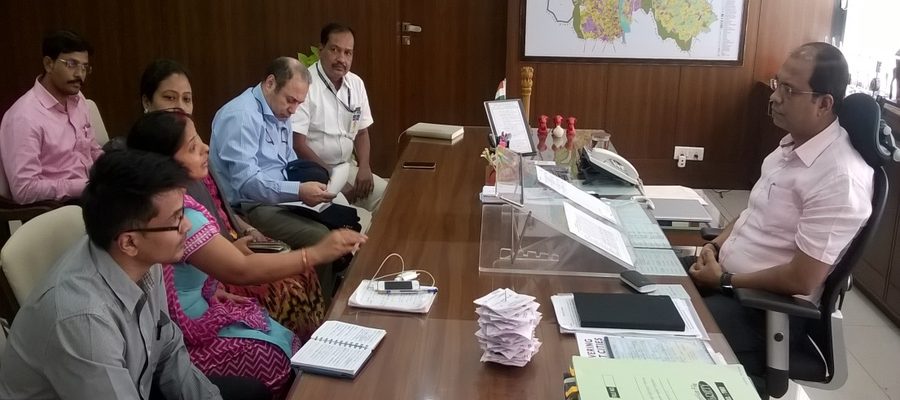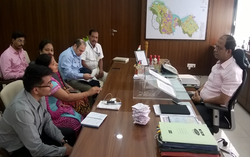District Energy Systems: Towards efficient cooling for buildings in India's cities

ICLEI South Asia, in collaboration with United Nations Environment Programme (UNEP), has initiated a project to help Indian cities accelerate their transition to low-carbon and climate-resilient development through modern District Energy Systems (DES). Called as “Renewable and Energy Efficiency in Buildings & Cities: Assessing Potential for District Energy Systems (DES) in Indian Cities”, the project aims to provide technical assistance and capacity building activities to local governments and stakeholders in India, to develop a replicable modern district energy approach, particularly for district cooling, that can be further scaled up in the country.
What are District Energy Systems?
DES is a set up that produces steam, hot water or chilled water at a central plant. These are then supplied through pipes (usually underground) to individual buildings for space heating, domestic hot water heating and air conditioning. DES is much more efficient as compared to having individual air conditioners and chillers or boilers and furnaces in buildings as they make use of waste heat sources (from industries or power plants) and free cooling sources (such as lakes, rivers or seawater) to provide cooling and heating.
Five cities undergo rapid assessments
To kick off the project, five cities in India were selected for rapid assessments to understand their potential for implementing DES (cooling) initiatives and preparing a ground for developing a pilot-scale bankable, viable district energy project proposal. The assessments were conducted between November 2015 and January 2016 in Pune, Rajkot, Coimbatore, Thane and Bhopal.
For the purpose of assessments, a technical team comprising of experts from Empower (Dubai), Danfoss India, UNEP, ICLEI South Asia and KfW visited the cities. The exercise involved interactions with city departments and other key stakeholders to gather information to assess potential, opportunities and barriers for deployment of district cooling systems in these cities. Potential sites for implementation of district cooling system were also identified during the assessment visits.
The results of the assessment will be presented in a project inception workshop that will engage key stakeholders in technical discussions on DES. The workshop is scheduled to be held at Rajkot, in March 2016.
Based on the results of the rapid assessments, further detailed assessments will be undertaken in one selected city to develop a pilot scale DES cooling project proposal. The rapid assessments will also feed into further discussions with the Government of India to develop a replicable approach that can be scaled up in other cities.
